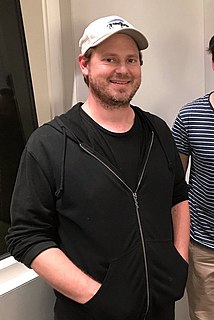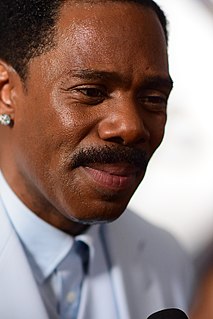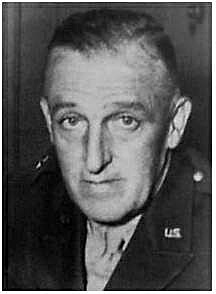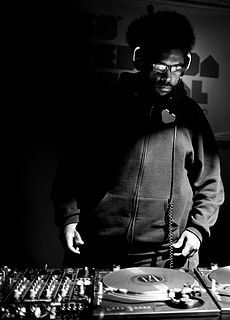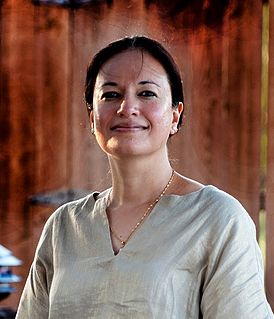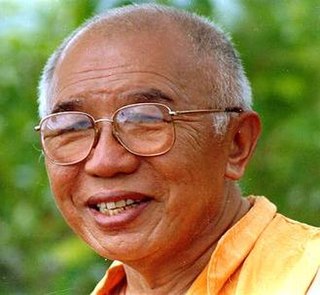Top 1200 Rhetorical Question Quotes & Sayings - Page 14
Explore popular Rhetorical Question quotes.
Last updated on December 23, 2024.
There was a message written in pencil on the tiles by the roller towel. This was it: What is the purpose of life? Trout plundered his pockets for a pen or pencil. He had an answer to the question. But he had nothing to write with, not even a burnt match. So he left the question unanswered, but here is what he would have written, if he had found anything to write with: To be the eyes and ears and conscience of the Creator of the Universe, you fool.
The question is, what are you going to do?" It turns out the question that's been eating away at me has only ever had one possible answer. But it took Peeta's ploy for me to recognize it. What am I going to do? I take a deep breath. My arms rise slightly - as if recalling the black-and-white wings Cinna gave me - then come to rest at my sides. "I'm going to be the Mockingjay.
The ordinary naturalist is not sufficiently aware that when dogmatizing on what species are, he is grappling with the whole question of the organic world & its connection with the time past & with Man; that it involves the question of Man & his relation to the brutes, of instinct, intelligence & reason, of Creation, transmutation & progressive improvement or development. Each set of geological questions & of ethnological & zool. & botan. are parts of the great problem which is always assuming a new aspect.
Women in the Arab world have a rich history in their active participation in political change from the Algeria revolution against the French occupation to the most recent revolution in Tunisia, Egypt, Libya among other countries. The question is not their participation. Their question is the incorporation of women's voices fully in the new definitions of the countries where change has happened.
In attempting to understand 9/11, the first question asked by the world's elites - as exemplified by leading media and academics - was, 'What did America do to provoke such hatred?' Ten years later, the same people are still asking the same question. And it is as morally repulsive now as it was then. It was always on par with 'What did the Jews do to antagonize the Germans? Or 'What did blacks do to enrage lynch mobs?'
The basic question that the 'new science' raises for our balance sheet is the issue of what scientific questions have not been asked for 500 years, which scientific risks have not been pursued. It raises the question of who has decided what scientific risks were worth taking, and what have been the consequences in terms of the power structures of the world.
I want people to think about movies and how we watch them. Let them know it's okay to question the structure or how we're sometimes duped into a false sense of normalcy. Most of all, I want people to question the old standard practices of, 'This is how the structure of something should work,' or, 'This is how a character must behave.'
No one should ever ask themselves that: why am I unhappy? The question carries within it the virus that will destroy everything. If we ask that question, it means we want to find out what makes us happy. If what makes us happy is different from what we have now, then we must either change once and for all or stay as we are, feeling even more unhappy.
For the academic the rhetorical sense of superiority through the possession of knowledge is essential for facing the daily grind, turning again to the otherwise boring article, braving the students who, fresh as each class may be, will still ask the same questions year after year. Psychological survival is not achieved without effort, and the environment must be managed, knocked about with one's elbows until it takes a shape comfortable to one's sense of self. This is not selfishness, for in reshaping the environment the academic is also reinvigorating the educational process.
If God were to exist for the entire humanity, he would be profoundly vile, as he allows the existence of unfathomable sin, stupidity, madness, and misery for no reason than his own despicable enjoyment. God exists though, not for all humanity, but for a one chosen man - a philosopher - who is bound to answer the greatest philosophical question, the question about the nature of the questioner's existence, which progressively quenches the divine vanity.
Have you seen this video of these cows who have been in a dairy farm, a really shitty one, their entire lives, and they're let out into a field, and they're literally jumping with joy? It's crazy. I don't have any trouble completely becoming that cow. There's no "What is it really like to be a cow?" kind of question anymore. There's no question at that moment whether I understand you completely. I think there is, in that moment, a possible total sympathy. Total sharing.
That is the first thing to learn - not to seek. When you seek you are really only window-shopping. The question of whether or not there is a God or truth or reality, or whatever you like to call it, can never be answered by books, by priests, philosophers or saviours. Nobody and nothing can answer the question but you yourself and that is why you must know yourself. Immaturity lies only in total ignorance of self. To understand yourself is the beginning of wisdom.
In one question you are expressing a world of opinion. Because it is you who thinks that America has been mistakenly starting these conflicts. I happen to agree with you, and I will repeat what your question suggested...we have mistakenly gotten into one fracas after another. Why we do that [United States has insisted on keeping up a string of enemies, and the wars associated with creating those enemies], I think it's because we're afraid to look in the mirror and understand who we are.
Taking ideas seriously does not fit with the rhetorical style of textbooks, which presents events so as to make them seem foreordained along a line of constant progress. Including ideas would make history contingent: things could go either way, and have on occasion. The 'right' people, armed with the 'right' ideas, have not always won. When they didn't, the authors would be in the embarrassing position of having to disapprove of an outcome in the past. Including ideas would introduce uncertainty. This is not textbook style.
Let's start with Jesus' answer: "Look for the kingdom first and all else will come together." Life is fragmenting, fragmented. I have a thousands things to do, others do too. We can live our life as if the main question is, "How can keep it together? How do I juggle all the balls? But the real question is, "How can I stay home - interiorly home - while I do these many things?
I've found that in life, and certainly in music, it's all just a series of occurrences in which you are constantly assessing the potential outcome of your decisions based on past precedence. As an aside, this is apparently the defining factor in science that separates artificial intelligence from human consciousness. One thing that our brains are really good at is taking a bunch of answers and extrapolating the question, whereas in computing, you input a question and it will provide an answer.
The transcendent and the numinous can be accessible to the most materialistic of scientists, without positing the supernatural. At the same time, there is no reason to mistrust the same experiences in believers simply because they posit a supernatural source. The question is not, "Does God exist?" It's irrelevant. The question is whether believers and nonbelievers can rejoice in the same experiences and not denigrate the other's explanation as to the origins of very powerful human responses.
I have been writing my heart out all my life, but only getting a living out of it now.... ... it's not a question of the merit of art, but a question of spontaneity and sincerity and joy I say. I would like everybody in the world to tell his full life confession and tell it his own way and then we'd have something to read in our old age.
If I was going to sum up my approach to this whole mind issue, I would say this: the question is often formulated in a very bad way - for example, by posing the question in terms of stuff. It's better to start with the things we do know: for example, that there are people and other thinking creatures, who have mental capacities. Our next step should be to say something about these capacities.
Both India and Pakistan have a long history of deploying rhetorical strategies to skirt the issue of plebiscite or complete secession of the former princely state of Jammu and Kashmir. When feeling particularly belligerent Pakistan cries itself hoarse declaring the legitimacy of plebiscite held under United Nations auspices in J & K; India responds just as aggressively by demanding the complete withdrawal of Pakistani troops from the territory of pre-partition J & K; or, in a moment of neighborly solicitude, for conversion of the LOC to a permanent International border.
Ordinary people do not question the commonly accepted version of reality. They conform to the standard values of subduing enemies and cherishing friends and family. Materialism, ambition and mundane achievements are the worldly hallmarks of success. We experience the phenomenal world and our minds as solid and truly existent. Very few people doubt these assertions and question their solidity. Yet, the process of disbelief is the first step on the spiritual path.
He [God] made us free, and He respects that. It is two different spheres of causality. Interdependent, though. It is not two boxes looking at one another without any kind of direct connections. There are very direct connections. That's why the question of "how are we free if God is omnipotent?" is a real, constant question. Ultimately, God is all powerful, and yet we are free.
To the question of writing at all we have sometimes been counselled to forget it, or rather the writing of books. What is required, we are told, is plays and films. Books are out of date! The book is dead, long live television! One question which is not even raised let alone considered is: Who will write the drama and film scripts when the generation that can read and write has been used up?
The key question isn't "What fosters creativity?" But why in God's name isn't everyone creative? Where was the human potential lost? How was it crippled? I think therefore a good question might not be why do people create? But why do people not create or innovate? We have got to abandon that sense of amazement in the face of creativity, as if it were a miracle that anybody created anything.
People with what we call mental illness can indeed serve well, and people who have no discernible mental illness - and that may be true of Trump - may not be able to serve, may be quite unfit. So it isn't always the question of a psychiatric diagnosis. It's really a question of what psychological and other traits render one unfit or dangerous.
I'm hoping my play opens up conversations, I hope it makes people question textbooks, I hope it makes #OscarsSoWhite and #HollywoodSoWhite question things. I hope my play sparks conversation between Latin kids and Latin parents and people start doing their own due diligence as well, I think it's everyone's responsibility.
We are posing two very clear questions. The first is: Did the Holocaust actually take place? You answer this question in the affirmative. So, the second question is: Whose fault was it? The answer to that has to be found in Europe and not in Palestine. It is perfectly clear: If the Holocaust took place in Europe, one also has to find the answer to it in Europe.
I'd finished the first two [books] and they were going to to be published, and [editor] said, "We need you to write a summary that will drive people to these books." And it took forever. I couldn't think of a thing to say. I looked at the back of other children's books that were full of giddy praise and corny rhetorical questions, you know, "Will she have a better time at summer camp than she thinks?" "How will she escape from the troll's dungeon?" All these terrible, terrible summaries of books, and I just couldn't.
[My father] impressed upon me from the first, that the manner in which the world came into existence was a subject on which nothing was known: that the question, "Who made me?" cannot be answered, because we have no experience or authentic information from which to answer it; and that any answer only throws the difficulty a step further back, since the question immediately presents itself, "Who made God?
Of course, there remains the question of why we should find mind-brain identities so persistently counter-intuitive, if they are true. But this is a simple psychological question, and there are a number of plausible explanations. Indeed this is a topic that is quite extensively discussed outside philosophy, by developmental psychologists and theorists of religion among others, under the heading of 'intuitive dualism'. It is rather shocking that so few of the many philosophers working on 'the explanatory gap' are familiar with this empirical literature.
The key question facing those of us working in the media (old and new) is whether we embrace and adapt to the radical changes brought about by the Internet or pretend that we can somehow hop into a journalistic Way Back Machine and return to a past that no longer exists and can't be resurrected. There is no question that, as the industry moves forward and we figure out the new rules of the road, there will be - and needs to be - a great deal of experimentation with new revenue models.
I have always felt a little bit uncomfortable with question [why I'm write these stories]. It's not a question that you would ask a guy that writes detective stories or the guy that writes mystery stories, or westerns, or whatever. But it is asked of the writer of horror stories because it seems that there is something nasty about our love for horror stories, or boogies, ghosts and goblins, demons and devils.
The question is not about whether it will work or not. It's how quickly we can pull it off. Structural change will happen. When economies grow, there comes a time when you cannot rely on investment alone. We had that. The return on investment is becoming less and less. So we have to change. The old model doesn't work anymore. It's a question of speed.
When anarchists are having a debate, they're having a debate about tactics, 'Should you do this?', 'Should you do that?' The question isn't 'Should you do this?', 'Should you do that?', the primary question is how do you build confidence among the masses of people who experience hierarchies, who experience exploitation, who experience oppression.
But again and again there comes a time in history when the man who dares to say that two and two make four is punished with death. The schoolteacher is well aware of this. And the question is not one of knowing what punishment or reward attends the making of this calculation. The question is one of knowing whether two and two do make four
Somehow the pain, the losses, the hurt, the bad, God is able to transform these into something they could have never been, icons and monuments of grace and love. It is the deep mystery how wounds and scars can become precious, or a ravaging and terrifying cross the essential symbol of relentless affection.” “Is it worth it?” whispered Tony. “Wrong question, son. There is no ‘it.’ The question is and has always been, ‘Are you worth it?’ and the answer is and always, ‘Yes!’
This is what rhyme does. In a couplet, the first rhyme is like a question to which the second rhyme is an answer. The first rhyme leaves something in the air, some unanswered business. In most quatrains, space is created between the rhyme that poses the question and the rhyme that gives the answer - it is like a pleasure deferred.
One of the reasons that metaphor and symbolism are important in books is because they are also important to life. Like, for example say you're in high school and you're a boy and you say to a girl: "Do you like anyone right now?" - that's not the question you're asking. The question you're asking is, "do you like me right now."
Well, here’s a scientific question: Has anybody ever seen hard evidence? What we get is theories from our earlier prophets. Now, people who think that God invented us think that the Earth can’t be more than 6,000 years old. So I guess it’s a question of belief. My belief system doesn’t support a creator as such, as we can call God, who created us in His/Her/Its image.
This happened years and years ago, right as our videos were first being played on MTV. The interviewer said, "You guys are getting famous now. Are you going to be riding around in limousines, doing drugs, and sleeping with beautiful women?" And I was a precocious young man, and my snappy comeback to that cheerful question was, "We're willing to sleep with beautiful women." But no part of the question was in the article.
The question is not whether the good outweighs the bad. The question is whether or not the good excuses the bad. And, in my opinion, it doesn't. It never does. As long as wrongs are being commited, in any quantity, and in any ratio to the amount of good that is being done, it is both irresponsible and wrong not to bring awareness to it, and struggle to put an end to it.
They [teachers] beat it right out of me. Or they beat it into me and educated it out of me. I don't know; that's an interesting question. The Catholic schools required work, so I think that may have been where the work ethic came from, in answer to the question of how my character may have been shaped.
I was much more afraid in Montgomery when I had a gun in my house. When I decided that I couldn’t keep a gun, I came face-to-face with the question of death and I dealt with it. From that point on, I no longer needed a gun nor have I been afraid. Had we become distracted by the question of my safety we would have lost the moral offensive and sunk to the level of our oppressors.
I have often had cause to feel that my hands are cleverer than my head. That is a crude way of characterizing the dialectics of experimentation. When it is going well, it is like a quiet conversation with Nature. One asks a question and gets an answer, then one asks the next question and gets the next answer. An experiment is a device to make Nature speak intelligibly. After that, one only has to listen.
Because I would never work for a niche publication or a niche program on television and because I am a journalist and not an opinion person, my job is to try to see how many different points of view I can represent or how. It's not even a question of who you don't offend because you are always going to offend somebody. The question is how can you get people to listen to the information you have to present.








